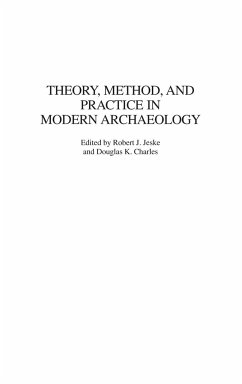This book presents 18 essays by leading scholars covering mortuary analysis, the archaeology of foraging and agricultural societies, cultural evolution, and archaeological method and theory, which transcend the processual/postprocessual debate in archaeology and provide examples of how archaeologists think about, and go about, studying the past. As archaeology encounters the 21st century, debate over the nature of the discipline dominates professional discourse. Archaeologists are embattled over isms: processualism, postprocessualism, scientism, and humanism are ubiquitous buzzwords in the literature. Yet archaeology is a craft practiced by individuals, learned from and influenced by other individuals. Sometimes a peson, through sheer force of intellectual spirit, rises above the debate to make a mark on the field in ways that cross out schools, paradigms, and factions. It is fitting to look back at the influence one such individual has had on archaeological methods, theory, data collection, and syntheses over the last half century. This volume draws on the experience of students and colleagues who worked with and were strongly influenced by James A. Brown's approach to the past. The volume is divided into five categories, each reflecting one distinctive facet of Brown's affect on archaeology: mortuary analysis, foraging and horticultural societies, complex agriculturalists, proto-historic and historic societies, and method and theory. These diverse categories, with articles by archaeologists of many backgrounds, are drawn together by the threads of Brown's intellectual legacy. Not all authors here are in agreement with Brown's views on their subjects, but all acknolwedge that his work in the area sets a standard that needs to be met if one is to succeed.
Hinweis: Dieser Artikel kann nur an eine deutsche Lieferadresse ausgeliefert werden.
Hinweis: Dieser Artikel kann nur an eine deutsche Lieferadresse ausgeliefert werden.

